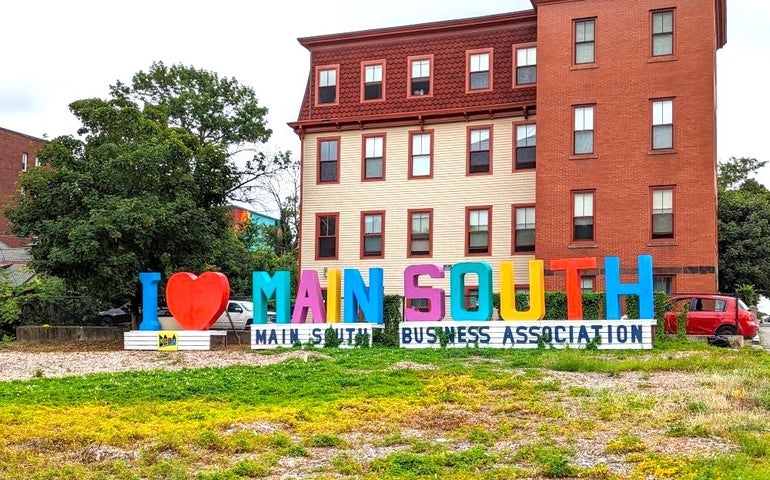The Main South Neighborhood Ambassador Program, a pilot program in Worcester put in place by state agency MassDevelopment, is about to lose its funding, unless neighborhood leaders are successful in raising money for the program before the layoffs hit at the end of the year.
The program began in June as part of MassDevelopment’s Transformative Development Initiative program. Two men from the neighborhood were hired full time to provide maintenance, increase safety, and promote a friendly atmosphere in the neighborhood.
The TDI program chooses districts in Gateway Cities to help accelerate economic growth. In 2014, the Theater District was the first TDI District in Worcester, graduating in 2018. Main South was named the next district in 2018 and graduated in June.
The ambassadors are valuable to local businesses, said Katia Norford, co-owner of Carlito’s Barbershop and secretary of the Main South Business Association.
“We can see the difference in the neighborhood since the program began. They clean up the sidewalks in front of businesses and check in on business owners to see if they need anything,” said Norford, “They are always available to help.”
Because the Main South district graduated from the TDI program, it will lose the funding the program provided to pay for the ambassadors. The amount of funding needed for strictly the ambassador program was not specified.
The Main South Community Development Corp. wants to continue the ambassador program and is seeking funding through foundations or private support, said Casey Starr, CDC director of community initiatives.
At the Nov. 29 Worcester City Council meeting, District 4 Councilor Sarai Rivera requested the City Manager Eric Batista consider providing support to the program. The council voted unanimously to send the order to Batista for consideration.
Rivera said supporting the program is a win-win: keeping community members employed while benefiting the neighborhood.
A spokesperson for the City told WBJ on Tuesday there was no update yet from Batista regarding the program.
The program has had a huge impact on the area, said Starr.
“They develop relationships with residents and businesses in the area,” Starr said.
The ambassadors connected with a local day care provider and arranged to clean up an area of a local park each day before the day care brought the kids there, so they were assured a clean, safe place to play, she said.
The Downtown Worcester Business Improvement District, a nonprofit organization funded through a tax surcharge on properties in downtown, sponsors a similar ambassador program for the area surrounding City Hall.
The Main South neighborhood has long been one of the hardest areas of the city to establish upward economic momentum, as it ranks near the bottom in poverty rate, percent renters, and household income among the regions of Worcester. Among the reasons for this is the legacy of redlining decisions made in 1936 to limit financial assistance in certain areas of the city, as detailed in a December project from WBJ and the Worcester Regional Research Bureau.
Without funding, the Main South ambassadors will lose their full time jobs at the end of the year.
“Time is of the essence,” Rivera said, “We cannot lose these ambassadors.”

